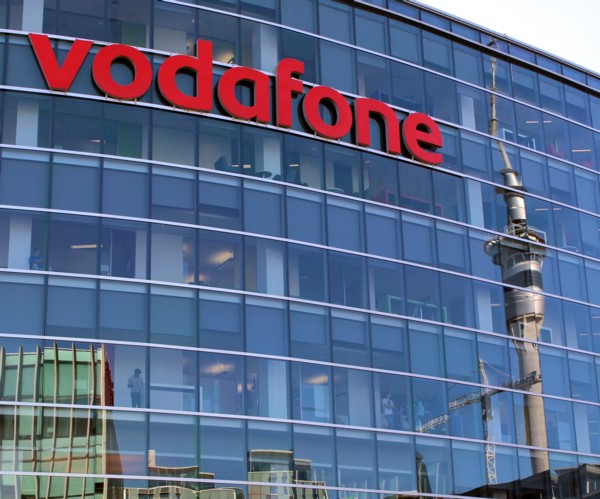Vodafone spins a global tax tale

Global mobile network company Vodafone has released its third, yes third, annual report (PDF) on its "global contribution to public finances".
While the OECD grapples with how or whether to force multinational corporations to deliver similar reports, Vodafone just went ahead and did it -- starting over two years ago.

The problems start right at the beginning, with the report's title: "Tax and our total contribution to public finances".
Vodafone doesn't just want to talk about tax, you see. It wants us to understand the broader context of its economic contribution to the countries in which it operates.
That's the first fudge.
It also doesn't want us to focus just on corporate income tax paid. To come up with its big number -- a global contribution to public finances of £14.75 billion in 2013-14, up from £13.5 billion in 2012-13 -- it even includes income tax paid by its employees and GST/VAT paid by its customers as if it were its own.
That's the second fudge.
More than a third of that £14.75 billion is made up of tax Vodafone did not pay, categorised as an "indirect revenue contribution".
That's not your money, Vodafone. It's not your contribution, even indirectly. Sure, you may have collected it on behalf of various governments, but in the case of PAYE you deducted it, as required, from your employees' wages.
It's the same with GST or VAT. Those are taxes on consumption, and they are paid by the final consumer. Vodafone does not pay that either, but wants to count it anyway.
Here's Vodafone's justification: "These indirect contributions to government revenue would not be collected (or generated to the same extent) if the company did not employ people and offer services or products to the customers responsible for paying the tax in question, or procure goods and services from its suppliers on which such taxes are due."
Rot.
Sure, those employees work for Vodafone and I'm sure they are very grateful for that. You are rightly acknowledged in many countries as being a great employer.
Just don't kid yourself that if you weren't there, those staff would be on the dole queue. Many of them would probably be working for another mobile phone company, servicing the huge gap in the market your absence created, investing in infrastructure, and hopefully making a (taxable) profit along the way.
Another couple of billion pounds that Vodafone is counting comes from payments such as telecoms licence fees, radio spectrum management fees, radio spectrum auctions, and other non-tax payments.
That's fudge number three.
Counting such payments is as absurd as trying to count tax paid by your employees as if it was your own. These are mostly either payments for services rendered by the state or payments for the use of public assets. Did you want them handed to you for free?
Again, if you didn't want to pay, someone else would have. That's why, especially in the case of spectrum, you paid so much. Remember?
There is a lot of edifying material in Vodafone's report that should serve to increase our understanding of international tax structures, especially in the section on Luxembourg and tax havens (page 4).
This is where Vodafone explains how it acquired a £22.6 billion tax credit in Luxembourg that will take around 60 years to extinguish.
Again, kudos for the transparency.
The Luxembourg tax regime has a number of "distinguishing features", Vodafone said, that are "typically drawn from competitive best practice in a number of EU member states".
"One of these features is particularly significant from Vodafone's perspective. Under long-established Luxembourg tax rules, a reduction in the book value of a company's assets (also known as an impairment or write-down of goodwill) that has been verified by independent auditors and the local tax authorities is recognised as a tax loss that can be offset against profits."
There are deep waters here, but I sense a fourth fudge. That's because most tax regimes separate capital and revenue items. Capital losses generally can't be claimed as a deduction against revenue earned, except in some cases through amortisation over a number of years.
Capital losses are a risk that falls on investors. If you allow a tax deduction for them against income, you are essentially socialising the cost of business failure. And we only do that for banks.
It is not Vodafone's fault that Luxembourg created a tax regime that allows this. But it is very much to its long-term benefit.
So, how much income/corporation tax did Vodafone pay globally in 2013-14? This may seem hard to believe, but that's one number the report doesn't disclose.
Vodafone said it paid £7 billion in what it calls direct government revenue contributions, up from £4.2 billion the year before. But that number includes corporation tax, rates, employers' national insurance contributions, municipal and city taxes, sector-specific taxes, stamp duty, land tax, climate change levies, customs duties, fuel excise duties, and on and on.
Fair enough, but not disclosing the amount of corporation tax separately is fudge number five.